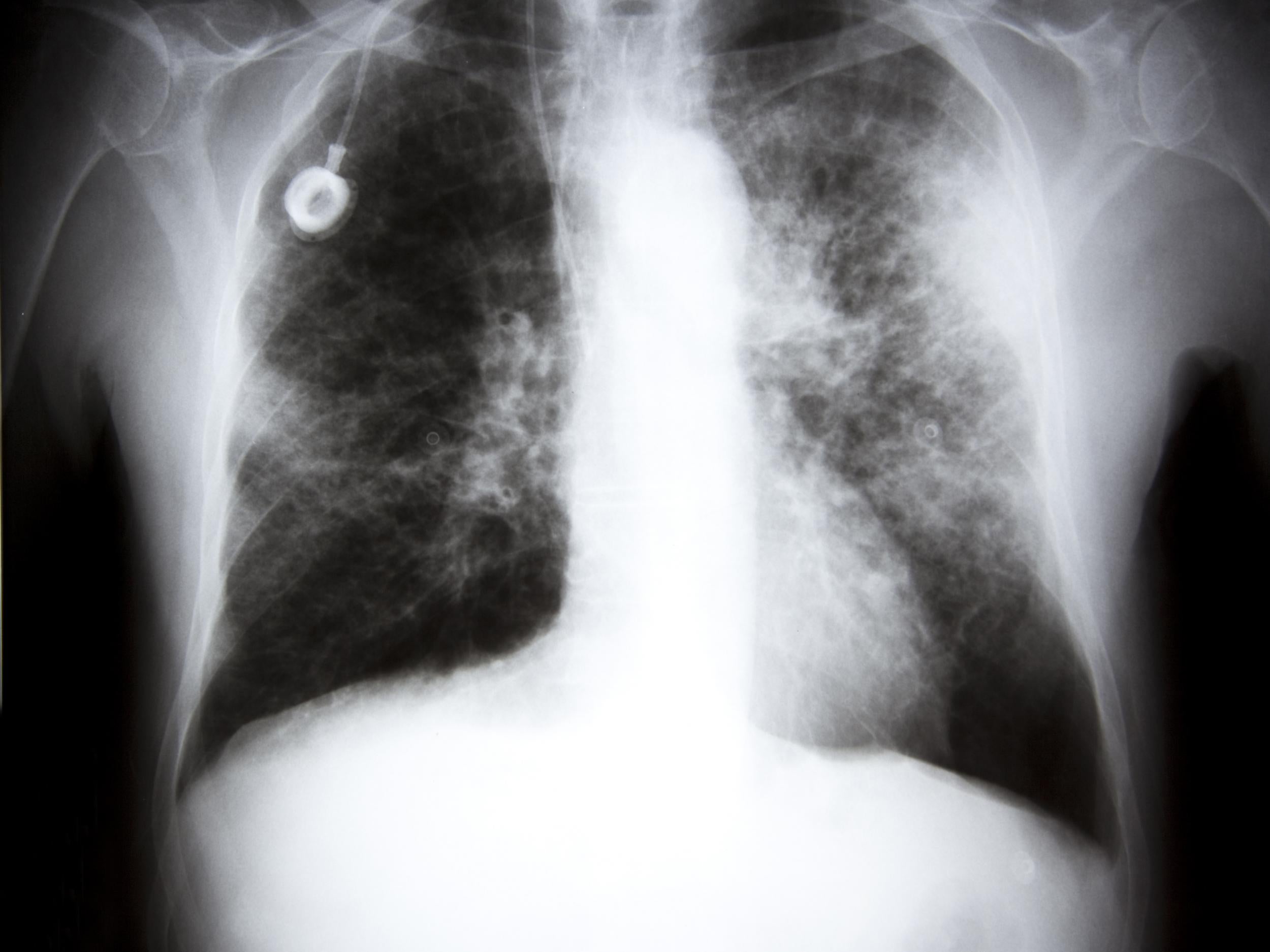Breath test for cancers could help tackle late diagnoses, finds trial
New equipment accurate 85 per cent of the time

Your support helps us to tell the story
From reproductive rights to climate change to Big Tech, The Independent is on the ground when the story is developing. Whether it's investigating the financials of Elon Musk's pro-Trump PAC or producing our latest documentary, 'The A Word', which shines a light on the American women fighting for reproductive rights, we know how important it is to parse out the facts from the messaging.
At such a critical moment in US history, we need reporters on the ground. Your donation allows us to keep sending journalists to speak to both sides of the story.
The Independent is trusted by Americans across the entire political spectrum. And unlike many other quality news outlets, we choose not to lock Americans out of our reporting and analysis with paywalls. We believe quality journalism should be available to everyone, paid for by those who can afford it.
Your support makes all the difference.A breath test that can quickly and accurately detect cancers of the throat and stomach could help to speed up screening and diagnosis of the disease, which is often caught too late for treatment.
In clinical trials, researchers from Imperial College London were able accurately identify oesophago-gastric cancers from breath samples 85 per cent of the time, in patients attending for a diagnostic endoscopy or surgery.
These account for 15 per cent of UK cancer deaths.
Existing tests require a tube to be inserted down a patient’s throat when they are under anaesthetic, at a cost of £600 per patient.
They cannot be widely used to diagnose people with early and often unspecific symptoms, like indigestion or acid reflux, so these cancers are often diagnosed late.
There are 15,000 new cases of these cancers diagnosed in the UK each year, of which only 38 per cent are potentially curable by the time they have been identified. The long-term survival is just 15 per cent.
“Alarming symptoms often indicate late cancer stage,” said Professor George Hanna, lead author of the study, published today in the Lancet Oncology journal.
“There is a real need for early detection of cancer when symptoms are non-specific and shared by benign diseases. Our breath test could be used as a first-line test before invasive investigations.”
The test’s accuracy will need to be refined with a much larger trial involving GP practices to assess its effectiveness in detecting earlier symptoms and its ability to pick up cancers in other parts of the body such as the pancreas.
The test examines chemical markers of the cancers that are passed into our airways and exhaled when we breathe out.
These volatile organic compounds (VOCs) are distinctive in oesophago-gastric cancers and by analysing the gases and materials, using mass spectroscopy, they were able to calibrate the test to identify cancers from among the other components.
Trials included 335 patients from the Royal Marsden and University College London Hospitals who had not eaten for four hours before the test.
Of these, 163 had already been diagnosed with an oesophago-gastric cancer while 172 had other benign diseases of the stomach or no issues.
Patients breathed into the measuring device to collect a sample, which was then analysed by technicians – who did not know whether the patient had cancer or not.
It proved accurate 85 per cent of the time.
Up to 95 per cent of endoscopies for these cancers come back negative, but the breath test in practices could be performed by nurses and sent for analysis at a regional lab as samples can be kept for up to 1.5 months.
“A breath test prior to endoscopy could substantially reduce the number of negative endoscopies and increase the cancer yield making the diagnostic pathway more effective with improved patient experience,” the study noted. “Avoiding unnecessary investigations would also free up resources in the NHS.”
Professor Hanna added: “Early detection of cancer gives patients more treatment options and saves more lives.”
Join our commenting forum
Join thought-provoking conversations, follow other Independent readers and see their replies
Comments